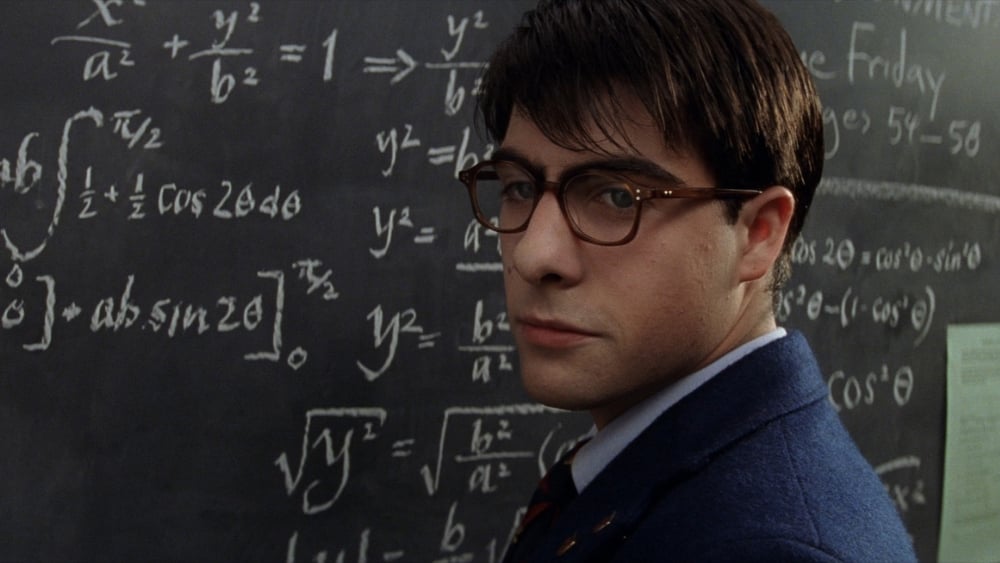A subset of critics and audiences feel Wes Anderson has never been able to top his sophomore effort “Rushmore.” I can see why to an extent. It has a pureness that his later descents into artifice don’t, but it’s a more refined, confident effort than his raw debut “Bottle Rocket.” But to me, “Rushmore” is an artist still finding himself, in ways that are endearing even when the choices made don’t work out.
“Rushmore” is a coming-of-age film for its main character, Max Fischer (Jason Schwartzman), and its filmmaker. Max and Anderson are trying to bite off more than they can chew, the former in his relationships with the adults in his life and the latter with wildly more ambitious formal techniques than in his first feature. That’s the emotional core that binds artist and subject, both want to be farther along than they are right now, but they need to work through their growing pains first.
If Max Fischer is not the single greatest character Wes Anderson has ever created, he’s certainly in the filmmaker’s pantheon. Anderson’s stellar writing should be given credit for creating a complex character that so beautifully captures youth in all its unlikeable, bratty, naive glory. But the bulk of the credit for Max’s portrayal has to go to Jason Schwartzman, who uses an overblown facade of confidence to hide Max’s deep-rooted fear and sadness about a world he doesn’t fit into. Schwartzman does an impressive job of creating a character that is utterly annoying and detestable, but that the audience still loves anyway. Schwartzman would go on to become an Anderson regular, but whenever he returns to a leading role, as he does in “The Darjeeling Limited” and “Asteroid City,” we see this facade of confidence slowly dissipate as he ages. Upon revisiting “Rushmore,” the rawness at the core of his performance as Max Fischer rises to the surface.
With the benefit of hindsight, we can see Anderson begin to come into his own in terms of his aesthetic and personal style. I can imagine that many of the people who were either first introduced to Anderson’s work through “Rushmore,” or came to it right after “Bottle Rocket,” this film was much more of a revelation formally, but coming to it for the first time years ago after watching “The Grand Budapest Hotel,” I can still only ever see this film as the building blocks of what his movies would become. We see him playing around more with the ‘60s pop soundtrack, color, detail, his brilliant work with young actors, and the symmetrical framing he would become so synonymous with later in his career, but it really feels like experimentation rather than the refinement we would see deeper in his filmography.
As ambitious as this film can be at times, relative to the straightforward “Bottle Rocket,” the seams begin to show when Anderson tries to reach for emotional beats that he isn’t capable of hitting yet. In what is ostensibly a comedy, Anderson attempts to go to some very dark places, particularly with the character of Herman Blume (“Bill Murray”), but Anderson’s tonal balancing skills are not what they would become even just one film later in “The Royal Tenenbaums.” None of the darker, emotional moments in “Rushmore” hit as hard as Richie’s suicide attempt or “I’ve had a rough year, Dad.” and it makes the whiplash between the tragedy and comedy more jarring. Nevertheless, experimenting with those elements in “Rushmore” would lead to some of the finest moments in his filmography down the line.
“Rushmore” is not Wes Anderson’s peak as a filmmaker, but it’s good that it isn’t. He would go on to do more ambitious and successful films in his career. The way he continues to reinvent himself makes for a far more fulfilling body of work than had he decided to keep trying to recapture what worked about his second feature. “Rushmore” is, however, the perfect coming-of-age film, not only capturing a specific type of youth that is somehow both unlikeable and deeply relatable but also working as a filmmaker’s coming-of-age. That blending of form and content has defined Anderson’s work from the beginning. It’s why he remains one of the best working filmmakers.

